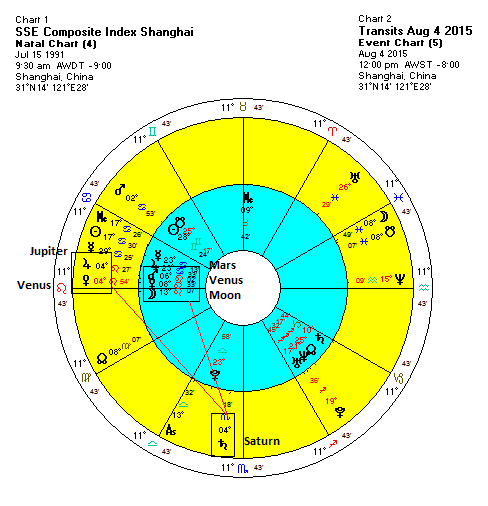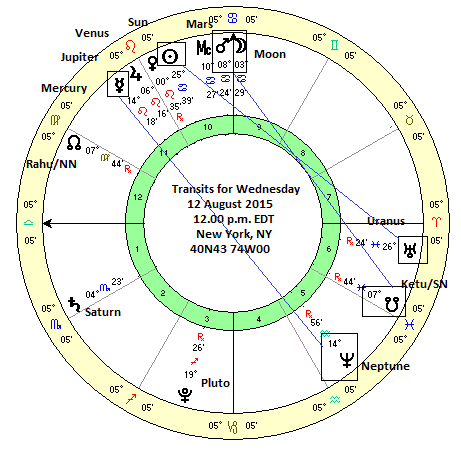 (9 August 2015) The world’s economic engine is showing more signs of running out of gas. The latest Chinese economic data revealed a declining manufacturing output for the third straight month. The Caixin PMI figure is now below the 50 threshold thus indicating economic contraction. With the Chinese government increasingly desperate to support the plunging stock market by any means necessary, there is more evidence that all is not right in the Middle Kingdom. As China slows, the risk of a global recession rises.
(9 August 2015) The world’s economic engine is showing more signs of running out of gas. The latest Chinese economic data revealed a declining manufacturing output for the third straight month. The Caixin PMI figure is now below the 50 threshold thus indicating economic contraction. With the Chinese government increasingly desperate to support the plunging stock market by any means necessary, there is more evidence that all is not right in the Middle Kingdom. As China slows, the risk of a global recession rises.
Back in my spring stock market forecast, I wondered what changes might lie ahead given the rising influence of Saturn during the summer months. Saturn is a malefic planet that is usually front and center in tense or difficult situations where our wishes are denied and lessons are only leaned the hard way. I thought that the last aspect of Jupiter (with Uranus and then Venus) in late June might mark the end of a relatively stable period in the world. Without any prominent Jupiter aspects in the mix for a while, bearish Saturn would be free to call the shots as it formed a series of aspects throughout the next three months. I thought stock markets could decline around the world.
Indeed, the Chinese stock market began its sudden crash in mid-June just a week before the culmination of the last Jupiter-Uranus aspect. The approach of the Saturn station in the early degrees of Scorpio was a key additional factor given its difficult position in the natal chart of the Index of the Shanghai Stock Exchange (SSEC) as it squared the Mars and Venus in the 1st house of that chart.

The first of the summer gauntlet aspects was Saturn’s 45-degree angle with Pluto throughout July and into August. While this is not a full-strength aspect, it does manifest as a conjunction in the 8th divisional chart and therein lies its damaging potential. Saturn stationed on August 2nd while forming an exact square aspect with Jupiter and Venus and this is only now slowly separating. The final Saturn aspect in this series occurs in mid-September when it aligns in a 120 degree aspect with Ketu, the South Lunar Node.
While Chinese stocks have fallen sharply, we have seen most global stock markets move only modestly lower since the late-June period. To be honest, I thought we would have seen more declines since that time. The Greece debt crisis seemed to fulfill the promise of the rising influence of Saturn since the ringed planet symbolizes debt and loss. While there was acute suffering and loss in Greece, a deal got done nonetheless and the Grexit abyss scenario was averted yet again. Some markets went down, but not by very much.
Now that the Saturn-Jupiter square has come and gone, we can ask what’s next as Saturn slowly aligns with Ketu, the South Lunar Node in September. The exact alignment is still 40 days away so it is possible that stocks could rise between now and then. But I would think that even if there is a renewed sense of optimism — especially around the Sun-Jupiter conjunction on August 26th — it is unlikely to turn the Saturnian tide in a significant sense. The final Saturnian gauntlet in September is probably the most challenging of the three major aspects this summer in any event. We shall soon learn if the correlation between Saturn and falling markets holds up again. Saturn tends to be bearish, of course, as it heightens caution, although this doesn’t apply to everyone equally. But I would argue that such Saturn aspects do coincide with rising pessimism across an aggregate comprised of many individuals. That is the point, after all, of studying financial markets from an astrological perspective.
Certainly, I find financial markets fascinating in their own right given the paramount importance of economics in shaping our world above any other cultural or political influence. But for astrologers, financial markets offer the unvarnished raw data of the effects of planetary transits. Stock markets are the best barometers of collective human sentiment we have and therefore they are the clearest human manifestation of the effects of transits. It is not possible to say what the effect of the Saturn-Jupiter square will be on humanity as a whole in some abstract sense. How can you prove that? As we know all too well, astrology is notoriously weak when it comes to proofs. Many astrologers try to write about these planetary alignments as if their effects are the same on everyone. But they are not! Each person will experience a transit differently because they have unique natal charts. Collectively, however, we can say that transits may have a more measurable effect through financial markets where each individual participant is allowed to express their own interests whether it be influenced by Jupiterian optimism, Saturnian pessimism and everything else in between.
Weekly Financial Market Update
Stocks generally declined last week as Saturn squared both Venus and Jupiter. US stocks fell more than 1% with the Dow closing at 17,373. Indian markets fared better, however, as the Sensex ended the week up modestly at 28,236. This negative outcome was in keeping with my overall expectations which I elaborated in greater detail in my weekly subscriber newsletter. The late week selling also seemed to fit fairly well with the Mars-Saturn alignment.
This week looks divided between the early week Mars-Ketu aspect and the late week Sun-Uranus alignment. Mars and Ketu (South Lunar Node) are both malefic planets and their alignments tend to be negative for stocks. That may well be the case here given the other influences in the air. Mercury also opposes Neptune on Wednesday so that is another problematic transit. But the Sun will align with Uranus later in the week just as bullish Venus changes signs. It is difficult to see how these late week patterns will produce anything other than gains.

You can be notified of new posts if you follow ModernVedAstro on Twitter.
Please note that this is a much abbreviated free version of my
investor newsletter which can be subscribed to
Please read my Disclaimer
Market forecast for week of 27 July 2015
Market forecast for week of 20 July 2015
Market forecast for week of 13 July 2015
Market forecast for week of 6 July 2015
Market forecast for week of 29 June 2015
Market forecast for week of 22 June 2015
Market forecast for week of 15 June 2015
Market forecast for week of 8 June 2015
Market forecast for week of 1 June 2015
Market forecast for week of 25 May 2015
Market forecast for week of 18 May 2015
Market forecast for week of 11 May 2015
Market forecast for week of 4 May 2015
Market forecast for week of 27 April 2015
Market forecast for week of 20 April 2015
Market forecast for week of 13 April 2015
Market forecast for week of 30 March 2015
Market forecast for week of 16 March 2015
Market forecast for week of 9 March 2015
Market forecast for week of 2 March 2015
Market forecast for week of 23 February 2015
Market forecast for week of 9 February 2015
Market forecast for week of 2 February 2015
Market forecast for week of 26 January 2015
Market forecast for week of 19 January 2015


